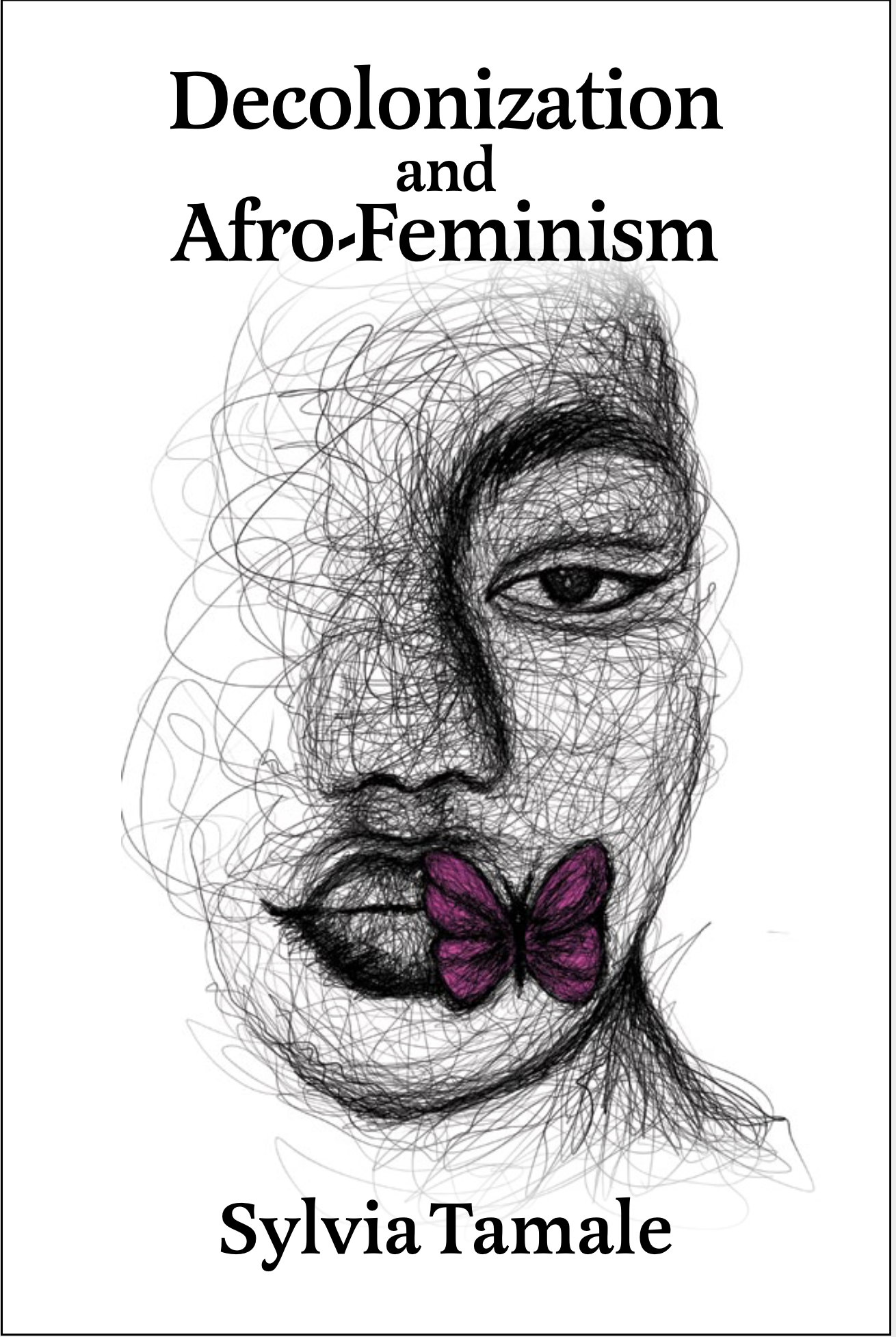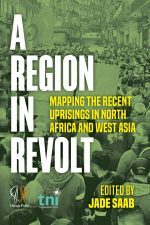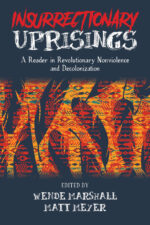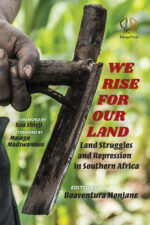“Lee Wengraf’s Extracting Profit – Imperialism, Neoliberalism and The New Scramble for Africa is at once historical and contemporary. It unpacks ongoing resource crimes by analytically exposing its historical roots and pointing to ways by which the oppressed can cut off the bonds that lock in their subjugation.” —Nnimmo Bassey, Director, Health of Mother Earth Foundation
“Lee Wengraf provides an important reminder that Africa’s position within the world economy is heavily determined by its unequal insertion into the global capitalist system and ongoing manifestations of imperialism.” –James Chamberlain, Sheffield Political Economy Research Institute
“Lee Wengraf’s Extracting Profit provides a breathtakingly detailed account and analysis of some of the major socioeconomic ills that have been plaguing Africa for centuries. Amongst the host of issues she tackles, arguably the most consequential are mass poverty in African societies, their indefensible economic inequalities and the steady plundering of the continent’s resources, starting from the slave-trade era up till the present-day.” –Remi Adekoya, Review of African Political Economy
“Extracting Profit offers several narratives of grassroots organizing and protest, pointing to the potential for resistance to global capital and fundamental change, in Africa and beyond.” –Developing Economics
“Evidently, this book is well-researched and it contributes to the expansion of the frontiers of Marxist scholarship on Africa’s development dilemma within the global capitalist order. This book lends credence to the pioneering works of such notable radical scholars as Andre Gunder Frank, Walter Rodney, and Samir Amin among several others. It should be read by students and teachers of political economy, development studies, Marxism and philosophy.” –Marx & Philosophy Review of Books
“Extracting Profit provides a great arch of scutiny from the earliest carve-up of the African continent, through colonialism, war, imperialism, to the recent neoliberal takeover. The book demonstrates the continued importance of Marxist analysis on the continent, asserting the centrality of class analysis and a project of revolutionary change. Wengraf provides us with a major contribution, that highlights contemporary developments and the role of China on the African continent that has perplexed and baffled scholars. An indispensable volume.” —Leo Zeilig, author of Frantz Fanon: The Militant Philosopher of Third World Revolution
“The history of resource frontiers everywhere is always one of lethal violence, militarism, empire amidst the forcing house of capital accumulation. Lee Wengraf in Extracting Profit powerfully reveals the contours of Africa’s 21st century version of this history. The scramble for resources, markets, and investments have congealed into a frightening militarization across the continent, creating and fueling the conditions for further political instability. Wengraf documents how expanded American, but also Chinese, presence coupled with the War on Terror, point to both the enduring rivalry among global superpowers across the continent and a perfect storm of resource exploitation. Wengraf offers up a magisterial synopsis of the challenges confronting contemporary Africa.” —Michael Watts, University of California, Berkeley
“One of the most well-known stylized facts of Africa’s recent growth experience is that it has been inequality-inducing in ways that previous growth spurts were not. Lee Wengraf, in her new book Extracting Profit , expertly utilises the machinery of Marxian class analysis in making sense of this stylized fact. Along the way we learn much about Africa’s historical relationship with imperialism and its contemporary manifestations. This book should be required reading for all those who care about Africa and its future.” —Grieve Chelwa, Contributing Editor, Africa Is A Country
“In recent years countries in the African continent have experienced an economic boom—but not all have benefited equally. Extracting Profit is a brilliant and timely analysis that explodes the myth of “Africa Rising,” showing how neoliberal reforms have made the rich richer, while leaving tens of millions of poor and working class people behind. Lee Wengraf tells this story within the context of an imperial rivalry between the United States and China, two global superpowers that have expanded their economic and military presence across the continent. Extracting Profit is incisive, powerful, and necessary: If you read one book about the modern scramble for Africa, and what it means for all of us, make it this one.” —Anand Gopal, author, No Good Men Among the Living: America, the Taliban, and the War Through Afghan Eyes
“Thorough and thoughtful, Wengraf’s book has a radical depth that underscores its significance. It’s definitely a must-read for anyone who cherishes an advanced knowledge on the exploitation of Africa as well as the politics that undermines Africa’s class freedom.” —Kunle Wizeman Ajayi, Convener, Youths Against Austerity and General Secretary of the United Action for Democracy, Nigeria
“Extracting Profit is a very important book for understanding why the immense majority of the African population remain pauperised, despite impressive growth rates of mineral-rich countries on the continent. It continues the project of Walter Rodney’s How Europe Underdeveloped Africa. And in several ways, it also goes beyond it, capturing the changing dynamics of global capitalism 45 years after Rodney’s magnus opus.
In this book, Lee Wengraf debunks the myth of “Africa Rising” and the supposed expansion of an entrepreneurial middle-class, revealing “reforms” imposed by international financial institutions as mechanisms for fostering imperialism in an era of sharpening contradictions of the global capitalist economy. The adverse social, economic, political and environmental impact of these are elaborated on as a systemic whole, through the book’s examination of the sinews of capital’s expansion in the region: the extractive industries.
But, Wengraf does not stop at interrogating the underdevelopment of Africa. Her book identifies a major reason for the failures of national liberation projects: while the working masses were mobilised to fight against colonial domination, the leadership of these movements lay in the hands of aspiring capitalists, and intellectuals. The urgency of the need for a strategy for workers’ power internationally, she stresses correctly, cannot be overemphasized.
Reading Extracting Profit would be exceedingly beneficial for any change-seeking activist in the labour movement within and beyond Africa.” —Baba Aye, editor, Socialist Worker (Nigeria)










Alexandra Walker
Delinked:
A Review of Sylvia Tamale’s Decolonization and Afro-Feminism
By Alexandra Walker (Howard University C’27) as part of the Black Feminist Theory taught in Howard University’s Women’s, Gender and Sexuality Studies Program
Decolonization and Afro-Feminism by Sylvia Tamale is an intricate work that weaves together the intersectional relationship between racialism, capitalism, patriarchy, and gender roles within an African context to center decolonization as integral to the advancement of Afro-feminism. Professor Sylvia Tamale is a feminist, a legal scholar, and human rights practitioner whose fearlessness in speaking truth to power led her to serve as the first woman Dean of Makerere University School of Law. Fittingly, Tamale critically examines the historical, cultural, and socio-political dimensions of decolonization and its implications for the advancement of Afro-feminist thought.
Tamale begins by setting a historical backdrop for the work, because a clear understanding of the past enables one to walk with discernment in the present. In chapter one, Tamale explains that decolonization cannot be a one-time moment or thing. Decolonization and decolonial effects have historically been “Band-Aids” from people picking at the scabs that colonialism left on the continent. Tamale suggests that there needs to be more than a “Band-Aid” effort to fix the deep scars that have been left so to completely understand the complex damages left by colonization. The reversal of colonial legacies may take centuries and require unique and creative approaches.
Tamale’s notion of decolonization is multifaceted. Africans must think beyond “de-construction” of colonial structures and systems. Without a clear plan to rebuild and reconstruct there is no reason to de-construct and Tamale suggests that this sends Africans back into the arms of the colonizers. Moreover, the African agenda for decolonization and decolonial thought and activism should include reconstructions that prioritize: a) reclaiming humanity, b) reasserting self-determination, c) restoring spirituality, d) rebuilding territorial and bodily integrity, and above all, Africanness and the celebration of womanness.
Tamale makes one thing very clear, the goal of African decolonization and the decolonial project is about one thing: the restoration of dignity to the African people. Tamale does this by analyzing decolonization through a feminist lens. She asserts that decolonization cannot only address political independence but they must all challenge patriarchal structures inherited from colonial rule. Tamale draws attention to the often-overlooked contributions of African women in the struggle for liberation and asserts the need for an inclusive decolonization that recognizes and values the agency of women.
Later, Tamale breaks down some of the methods Europeans and Asians used to colonize Africa. From political colonization to the insidious and dangerous methods of psychological colonization, Tamale suggests that these same tactics can be used in reverse to decolonize and deconstruct colonial structures in Africa. She continues to say that Africans’ sense of history needs to be “delinked ” from the empire in order to delve deeper into Africa’s past (beyond the period of colonialism). Colonial powers were able to maintain their grip, influence, and imperialism through laws, education, religion, and pop culture. Tamale shows that through these mechanisms of globalization, naturalization, and rationalization colonists have been able to blur Africa’s vision to anything “indigenous”, which she aptly identifies as internalized colonization. Moreover, internalized colonization is so entrenched in global structures that the path to decolonization seems difficult and tortuous.
The intersectionality of identities is a central theme in Tamale’s analysis. She contends that Afro-feminism must confront the interconnected systems of oppression based on race, gender, and class. Tamale states that it is impossible to analyze race without also analyzing gender. Tamale continues to explain that until there is a shift to an understanding where there does not have to be an other to understand self, colonial structures will remain in place.
Sylvia Tamale’s Decolonization and Afro-Feminism is a groundbreaking exploration of the intersections between decolonization and feminism in the African context. The work explores and challenges prevailing colonial political, economic, and social structures. Tamale advocates for a more inclusive understanding of colonial structures as this is the only way to decolonize and delink African thought from colonial teachings. Tamale emphasizes the agency of women, while calling for a radical approach that recognizes the complexity and interconnectedness of racial, gender, and other colonial structures. Tamale’s book outlines key strategies, plans, and goals for the decolonization movement and the quest for the restoration of African dignity.
Tamale presents the possibility for a more just future in her critique of the present and suggestions for a pragmatic step forward. Tamale challenges reluctant minds, affirms African feminism as distinct within the spectrum of the global feminism, and places herself within the ever-developing canon of pivotal Black feminist thought for the 21st century. It becomes evident why the Black Feminist Theory course at Howard University incorporates Tamale into the list of authors and the book as assigned reading. It leads us to ask ourselves, “How do we get the work in front of the individuals who need to review them most?” whether in Africa or in one region of the global African Diaspora.